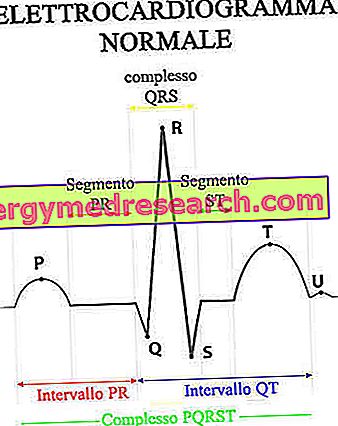Generality
The omega 3 fatty acids are polyunsaturated fatty acids derived from the alpha linolenic acid progenitor.
Despite the biological importance of the latter, the main clinical and integrative repercussions of omega 3 are to be attributed to two of its derivatives: eicosapentanoeic acid (EPA) and docosahexaenoic acid (DHA).

These nutrients are in fact attributed anti-inflammatory, antioxidant and metabolic properties, particularly valuable in the management of the main western diseases, such as diabetes, dyslipidemia and inflammatory diseases.
Good tolerability and easy availability contribute to the great success of these supplements.
Indications
Why are omega 3 used? What are they for?
The characterization of the molecular activity of prostaglandins has allowed to adequately clarify the biological potential of polyunsaturated fatty acids of the omega 3 series, useful in the prevention and management of different morbid states.
After observing the pathogenic role of inflammation in the onset of numerous morbid states, both acute and chronic-degenerative, omega-3s have become important protagonists in the dietetic and nutritional scenario.
Currently, omega 3 fatty acids are attributed:
- Cardio- and vaso-protective properties, mediated by the antithrombotic and antihypertensive action;
- Anti-inflammatory properties;
- Neuroprotective properties, valuable in many neurodegenerative diseases;
- Lipid-lowering properties;
- Metabolic properties;
- Cytoprotective properties.
In light of the aforementioned properties, omega 3s are currently used in the management of:
metabolic pathologies, such as diabetes and hypercholesterolemia,
of cardiovascular diseases,
of neurological pathologies, such as Alzheimer's, senile dementia and Parkinson's disease,
and autoimmune and autoinflammatory diseases.
Property and Effectiveness
What benefits have omega 3 shown during the studies?
Careful research in the literature demonstrates how the number of studies concerning the efficacy of omega 3 in the clinical setting has increased dramatically in recent years, identifying among other things new applications.
Omega 3 and cardiovascular diseases
The main and primary field of intervention and prevention of omega-3s was precisely the cardiovascular one.
The usefulness of omega 3 in cardiology depends on the capacity of
- reduce endothelial dysfunction,
- modulate the inflammation of the endothelium,
- inhibit the oxidation of LDL cholesterol
- reduce blood concentrations of LDL cholesterol and especially triglycerides.
Omega 3 and metabolic pathologies
Although the amount of work is not as extensive as for cardiovascular diseases, several studies demonstrate the usefulness of omega 3 in managing severe metabolic conditions, such as diabetes and the metabolic syndrome.
In addition to the anti-inflammatory action, useful in counteracting the damaging action of visceral adipose tissue, in some studies the omega 3 would have also demonstrated a potential insulin-sensitizing activity, particularly useful in the course of diabetic pathology.
Omega 3 and neurodegenerative diseases
The well-characterized antioxidant and anti-inflammatory actions, together with the structural role towards lipid membranes, would contribute to making omega-3 excellent allies during neurodegenerative diseases.
Several studies demonstrate the usefulness of these nutrients in controlling the progression of the disease, safeguarding the structural and functional integrity of the nervous system.
Omega 3 and sport
In recent years, omega-3s have also conquered the sports world.
The two pillars on which this application is based are:

- anti-inflammatory and antioxidant activity, particularly valuable during intense training sessions.
Recent work would also describe an improvement in ventilatory and respiratory capacities in athletes subjected to integration with omega 3, thus opening up important new prospects.
Doses and method of use
How to use omega 3
The omega 3 supplements, generally extracted from fish oil, are currently available in various pharmaceutical formats, such as capsules, capsules and liquid solutions.
The most used dosages, both preventive and clinical, are between 1 and 5 g per day, to be divided, especially for the most generous dosages, in several assumptions.
In order to optimize absorption, it is suggested to take omega 3 just before a meal, so as to exploit the emulsifying action of bile.
To preserve the structural integrity of the omega 3, preventing potential lipoperoxidation processes, it is recommended to keep the supplements away from light and heat sources.
The simultaneous presence of liposoluble antioxidants, such as vitamin E, could contribute to preserving the quality of the product.
There are several quality certifications related to the degree of oxidation, to the content of heavy metals and toxic substances; the best known is probably the IFOS (International Fish Oil Standard).
Side effects
The use of omega 3, at the recommended dosages, is generally safe and well tolerated.
The most frequently observed side effects would affect the gastro-enteric apparatus, with nausea, dyspepsia, abdominal pain, diarrhea, aerophagia and fishy-flavored regurgitations.
The occurrence of coagulative and hemorrhagic complications is decidedly rare.
Contraindications
When should omega 3 not be used?
The use of omega 3 is contraindicated in case of hypersensitivity to the active substance or to the food from which they were extracted.
Pharmacological Interactions
Which drugs or foods can modify the effect of omega 3?
In light of the potential anti-aggregation and antithrombotic activity of the omega 3, in order to reduce an increase in the risk of bleeding it would be advisable to take particular care in the contextual assumption of:
- Aspirin;
- Non-steroidal anti-inflammatory drugs;
- Warfarin;
- Garlic and ginkgo biloba.
Precautions for use
What do you need to know before taking omega 3?
The use of omega 3 during pregnancy, lactation and in the first years of life should be supervised by medical personnel.
The same attention should be paid to patients on drug therapy with anticoagulants and antiplatelet agents.
The use of omega 3 should be suspended before surgery due to the increased risk of bleeding.




